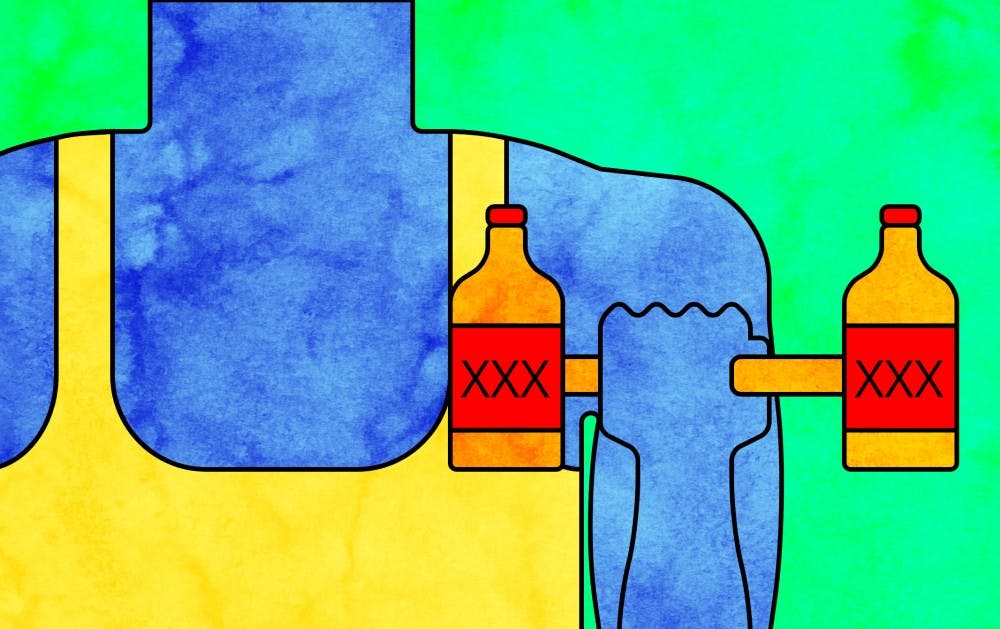A "man's man." Cocky personality, no emotions, proving yourself constantly. These are all qualities of how toxic masculinity presents itself in men.
During a time where young men and women are beginning to better understand their identity, the mindset of toxic masculinity is often forced onto young men. This fosters a hostile campus culture that harms both men and women.
The mindset of toxic masculinity is defined in a speech about author Tim Winton's book The Shepherd's Hut as the expectation for young men, “to renounce the best of themselves and submit to something low and mean.”
As the perpetrators of toxic masculinity, many men can suffer from physical and mental consequences due to the pressures of unrealistic expectations.
Research from San Diego State University showed that male students spent more time playing video games, watching television and going to the gym than female students. Male students also participated less in campus and community organizations, leading to fewer meaningful relationships and increased solitude.
Toxic masculinity can discourage men from seeking help and appearing vulnerable, pushing men to either succeed without help or tough it out and quietly suffer.
Upholding this expectation can lead to dangerous consequences that can impede the success of male students, such as an increased alcohol consumption.
According to findings from the Alcohol Research Current Reviews in a 2014 national survey, 33 percent of college aged men reported of participating in binge drinking, compared to 17 percent of college aged women.
Institutions like Stony Brook University and University of South Florida have found that the four to six-year graduation rate for male students is drastically lower than that of female students. They aren’t outliers, but rather examples of a troubling nationwide trend among colleges.
While men endure the pain of perpetrating the culture of toxic masculinity, women are the ones who primarily endure the aftermath of their actions.
Sally Kitch, an University and Regents' professor of women's and gender studies, explained how toxic masculinity on college campuses affects men and women differently.
“The idea of having to prove your masculinity to other men is very stressful and dangerous," said Kitch. "The consequences tend to land on women a lot. This need to be masculine and assert masculinity in these dangerous ways have a lot of impact on women’s lives."
In addition, in the sexualization of male power, women are the primary victims, she said.
“A lot of sexual violence is often misunderstood," Kitch said. "It’s not about sex. It’s about power. Men use their sexuality to impose their powers on others. The audience is other men, and women are just used in order to demonstrate this.”
According to the Rape, Abuse and Incest National Network, 23.1 percent of female undergraduate students experience rape or sexual assault compared to 5.4 percent of male students.
College is one of the most vulnerable times in a young person’s life, and the urging of toxic masculinity has a long-lasting effect that ultimately encourages a society where women are seen as props.
Reach the columnist at jreksodi@asu.edu and follow @jfreksodiputro on Twitter.
Editor’s note: The opinions presented in this column are the authors’ and do not imply any endorsement from The State Press or its editors.
Want to join the conversation? Send an email to opiniondesk.statepress@gmail.com. Keep letters under 500 words and be sure to include your university affiliation. Anonymity will not be granted.
Like The State Press on Facebook and follow @statepress on Twitter.




